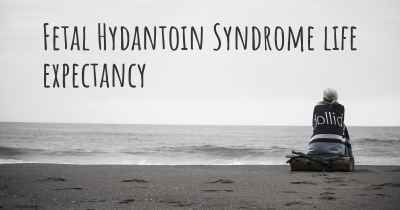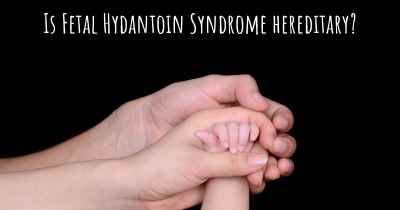Which advice would you give to someone who has just been diagnosed with Fetal Hydantoin Syndrome?
See some advice from people with experience in Fetal Hydantoin Syndrome to people who have just been diagnosed with Fetal Hydantoin Syndrome

Advice for Someone Diagnosed with Fetal Hydantoin Syndrome
Receiving a diagnosis of Fetal Hydantoin Syndrome (FHS) can be overwhelming and raise numerous questions and concerns. FHS is a condition that occurs when a developing fetus is exposed to the medication phenytoin (Dilantin) during pregnancy. This exposure can lead to a range of physical, cognitive, and behavioral challenges for the affected individual.
1. Seek Professional Guidance:
It is crucial to consult with a team of healthcare professionals who specialize in FHS. This team may include pediatricians, neurologists, geneticists, developmental specialists, and therapists. They will provide you with comprehensive information, guidance, and support tailored to your specific situation.
2. Educate Yourself:
Take the initiative to learn about Fetal Hydantoin Syndrome. Understanding the condition, its symptoms, and potential challenges will empower you to make informed decisions regarding treatment options and interventions. Reliable sources such as medical journals, reputable websites, and support groups can provide valuable insights.
3. Early Intervention:
Early intervention services are crucial for children with FHS. These services, which may include physical therapy, occupational therapy, speech therapy, and educational support, aim to address developmental delays and enhance overall functioning. Engaging with early intervention programs as soon as possible can significantly improve outcomes.
4. Regular Medical Check-ups:
Regular medical check-ups are essential to monitor the progress of the individual with FHS. These appointments will help identify any emerging health concerns, track growth and development, and ensure appropriate medical interventions are in place. Maintaining open communication with healthcare providers is vital.
5. Create a Supportive Environment:
Establishing a supportive and nurturing environment is crucial for individuals with FHS. This includes providing a structured routine, clear expectations, and consistent boundaries. Creating a calm and predictable atmosphere can help minimize anxiety and behavioral challenges.
6. Foster Social Connections:
Encourage social interactions and connections for individuals with FHS. This can be achieved through participation in community programs, support groups, and activities that promote socialization. Building a network of understanding and supportive individuals can greatly enhance the well-being of both the affected individual and their family.
7. Advocate for Your Loved One:
As a caregiver or family member, it is essential to advocate for the needs and rights of the individual with FHS. This may involve working closely with healthcare providers, educators, and other professionals to ensure appropriate accommodations, educational support, and access to necessary resources.
8. Take Care of Yourself:
Caring for someone with FHS can be demanding, both physically and emotionally. It is crucial to prioritize self-care and seek support when needed. Connecting with other caregivers, joining support groups, and accessing respite care services can provide valuable assistance and prevent burnout.
9. Stay Positive and Celebrate Achievements:
While FHS presents challenges, it is important to focus on the strengths and celebrate achievements, no matter how small they may seem. Encouragement, positive reinforcement, and a nurturing environment can contribute significantly to the overall well-being and development of the individual with FHS.
10. Stay Informed about Research and Treatment Advances:
Stay updated on the latest research and treatment advances related to FHS. Medical knowledge and understanding of the condition continue to evolve, and new interventions may become available. Staying informed will enable you to explore potential options and make informed decisions regarding the care of your loved one.
Remember, every individual with Fetal Hydantoin Syndrome is unique, and their needs may vary. The advice provided here serves as a general guide, and it is important to consult with healthcare professionals for personalized recommendations and support.








